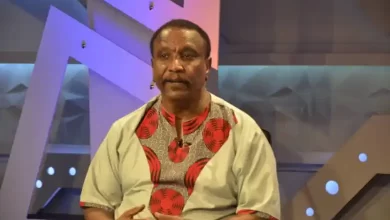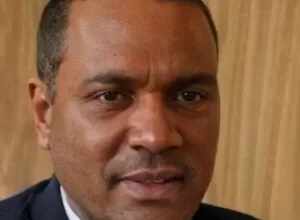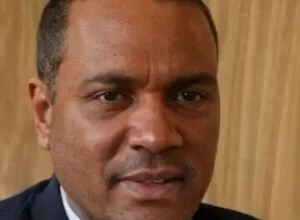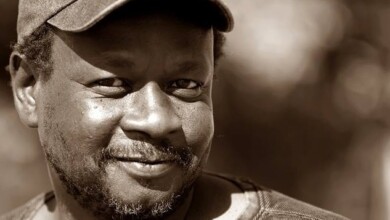“Ali Yaqoub”… How many men in Mecca are like Hamza?
Ali Ahmed
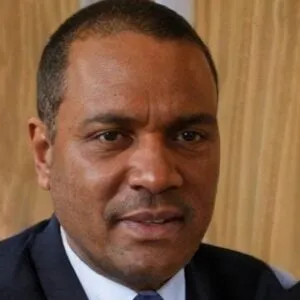
Our wound is bloody and we are silent
Our sadness is immense and we are patient
So do whatever you wish with us. For how many men in Mecca are like Hamza?
The aforementioned “Hamza” to whom our famous poet “Salah Ahmad Ibrahim” was referencing is, the great Companion of the Prophet (PBUH) “Hamza ibn Abd al-Muṭṭalib,” who was martyred in the Battle of Uhud, and our most honorable Messenger (PBUH) was greatly distressed by his death. It was even said that our Messenger (PBUH) had never cried over the death of someone as he did for Hamza. Due to his exceptional courage, morals, and loyalty, he was the leader who could be relied upon, much like how the Rapid Support Forces relied on the martyr “Ali Yaqoub.”
I am not attempting to compare or equate anyone to our most honorable Messenger -God forbid- but the biography of the hero “Ali Yaqoub” is similar to Hamza’s biography and heroism. Perhaps he lived his life following in his footsteps. The irony is that he not only resembles him in his valor, characteristics and life, but also in the manner of his death, as our hero was martyred by a treacherous bullet fired at him by a “Falangai” from a distance.
Likewise, “Hamza” was martyred in the past by a treacherous arrow shot at him by another “Falangai” called “Wahshi ibn Harb” who was a slave of “Hind bint Utbah”, and she promised him his freedom in exchange for killing “Hamza”. The irony of the situation is, both of them had their bodies mutilated after their deaths, whereas none could’ve dared to approach them while alive.
It is worth stating that I learned about the martyrdom of the hero “Ali Yaqoub” from the first post I stumbled upon opening “Facebook.” It was a circulating tweet from the “Minni Arcua Minnawi” account, which shared: (Farewell to the leader of the Darfur Holocaust), followed by a statement in halting English saying: (We got it). Therefore, naturally I looked into the matter to find out who was the leader of the Darfur Holocaust whom Minnawi was bidding farewell to. I found the news of the hero’s martyrdom widespread in most accounts, which in turn confirmed the validity of the news.
Truthfully, as sad as I was for his death, I wasn’t surprised by his martyrdom. How could I be surprised when the man kept declaring and repeatedly stating that he is keen to carry his shroud around with him? Indeed, I saw, as others did, the white piece of cloth amongst his belongings. And whoever carries their shroud with them is actively equating their life and death. It’s is a heavy burden that only the strongest heroes can bear.
I was equally unsurprised by Minnawi’s manner of sharing the news. He wouldn’t be “Minnawi” the fugitive, if he hadn’t written this. A true leader is one who faces death on the frontlines of the battlefields. Not someone who exists in the electronic virtual world, and surely isn’t an ignorant coward. How can he know about the morals of knights? He is intellectually weak, morally distorted, and self-persecuted, living with deep internal psychological battles due to the diseases of his miserable past and his unfortunate origins!
I am not attempting to highlight the status of the hero “Ali Yaqoub” among the Rapid Support Forces, in his community, his social environment and the Darfur community in general, as well as his invaluable contributions to achieving security, peace, and stability for all components of the region, regardless of their tribes, ethnicities, and political tendencies. Many people have written before me about him and highlighted the tremendous and important aspects of the life of a man, whom -like no other- possessed chivalry, manhood, valor and courage, combined with faith, certainty and lack of fear of death.
As I write today in an obituary and eulogy, I console myself first, and I also warn the masses who came out of the woodwork mocking the man’s death, cheering and rejoicing. The death of a knight is not the same as the death of an individual, but is rather the death of a nation.
The brave man represents a majority, and there is a historical context -only- the people of Darfur know about, especially the Arab component, regarding the impact of the loss of a knight of this magnitude causes, hence those who rejoiced must await the weeping, sad and miserable end, which we don’t wish for or want, but it is certainly coming regardless.
The life of our hero “Ali Yaqoub” was broad and full of love for people, especially the hardworking individuals, whom he worked with dedication and sincerity in order for them to live a more humane and happy life. And as his life was useful and righteous, his death has become a humanitarian feat..
As the death and martyrdom of our beloved “Hamza” was the reason for the liberation of the (Falangai) “Wahshi ibn Harb” from the slavery of “Hind bint Utbah”, so the martyrdom of our hero “Ali Yaqoub” will liberate all the “Falangai” of Darfur from the life of inferiority and humiliation to which they are subjected. Heroes also liberate their people as well as offer their lives in exchange for their freedom, and the hero “Ali Yacoub” sacrificed his life for the freedom, peace and prosperity of the people of Sudan in general, and Darfur in particular, in order to grant them the opportunity to live safe, free and stable lives. Without war, without “Wahshi ibn Harb” and without any “Falangai”
Mercy be upon you, alive and in death, Abu Yaqoub.

